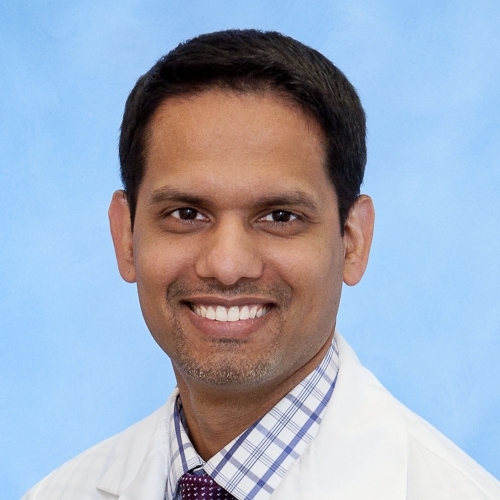
Professor of Neurosurgery
Chair, Department of Neurosurgery
Professor of Neurosurgery
Professor of Radiology
Professor of Otolaryngology-Head and Neck Surgery
Medical Director, Comprehensive Stroke Center Surgical
Residency Assistant Director
Program Associate
Network Strategy Liaison
Service Chief, Neurosurgery
Department of Neurosurgery
1500 E. Medical Center Drive, TC3470
Ann Arbor, MI 48109-5338
[email protected]
1500 E. Medical Center Drive, TC3470
Ann Arbor, MI 48109-5338
Available to mentor
Aditya S Pandey, MD

Professor
-
FellowshipThomas Jefferson University Hospital, Philadelphia, 2008
-
ResidencyThomas Jefferson University Hospital, Philadelphia, 2007
-
InternshipThomas Jefferson University Hospital, Neurosurgery, 2002
-
MDCase Western Reserve University Medical School, 2109 Adelbert Rd, 2001
-
BSWashington University, St. Louis, 1997
-
Center MemberPrecision Health Initiative
-
Center MemberInstitute for Healthcare Policy and Innovation
-
Center MemberCenter for Integrative Research in Critical Care
-
Duclos S, Choi SW, Andjelkovic AV, Chaudhary N, Camelo-Piragua S, Pandey A, Xu Z. Ultrasound Med Biol, 2024 May; 50 (5): 639 - 646.Journal ArticleCharacterization of Blood-Brain Barrier Opening Induced by Transcranial Histotripsy in Murine Brains.
DOI:10.1016/j.ultrasmedbio.2023.12.014 PMID: 38302370 -
Bah MG, Dowlati E, Fleigner M, Koduri S, Pandey A, Lin LY, Chenevert TL, Troost J, Xi G, Keep R, Chaudhary N. Neuroimaging Clin N Am, 2024 May; 34 (2): 215 - 224.Journal ArticleMR Imaging-based Biomarker Development in Hemorrhagic Stroke Patients Including Brain Iron Quantification, Diffusion Tensor Imaging, and Phenomenon of Ultra-early Erythrolysis.
DOI:10.1016/j.nic.2024.01.001 PMID: 38604706 -
Zhao J-L, Holste KG, Pandey AS, Hu J, Wu G. Transl Stroke Res, 2024 Apr; 15 (2): 409 - 410.Journal ArticleIntracranial Pressure Monitoring: an Effective Technique to Balance Cerebral Perfusion and Blood Pressure Reduction in ICH Patients.
DOI:10.1007/s12975-023-01129-5 PMID: 36729279 -
Siddiqui FM, Fletcher JJ, Elias AE, Dandapat S, Kale SP, Heiferman D, Riedy L, Farooqui M, Rodriguez‐Calienes A, Vivanco‐Suarez J, Pandey AS, Ortega‐Gutierrez S. Stroke Vascular and Interventional Neurology, 2024 Mar; 4 (2):Journal ArticlePatterns of Care in the Diagnosis and Management of Intracranial Atherosclerosis‐Related Large‐Vessel Occlusion: The Rescue‐LVO Survey
DOI:10.1161/svin.123.001133 -
Yaghi S, Engelter S, Del Brutto VJ, Field TS, Jadhav AP, Kicielinski K, Madsen TE, Mistry EA, Salehi Omran S, Pandey A, Raz E, American Heart Association Stroke Council; Council on Cardiovascular and Stroke Nursing; Council on Clinical Cardiology; and Council on Peripheral Vascular Disease . Stroke, 2024 Mar; 55 (3): e91 - e106.Journal ArticleTreatment and Outcomes of Cervical Artery Dissection in Adults: A Scientific Statement From the American Heart Association.
DOI:10.1161/STR.0000000000000457 PMID: 38299330 -
Mierzwa AT, Al Kasab S, Nelson A, Ortega S, Vivanco-Suarez J, Farooqui M, Jadhav AP, Desai S, Toth G, Alrohimi A, Nguyen T, Klein P, AbdalKader M, Pandey A, Koduri S, Vora S, Aladamat N, Gharaibeh K, Afreen E, Zaidi S, Jumaa MA. Stroke, 2024 Feb; 55 (Suppl_1):Journal ArticleAbstract WP183: Intracranial Atherosclerotic Disease in Acute Basilar Artery Occlusion
DOI:10.1161/str.55.suppl_1.wp183 -
Mierzwa AT, Rao R, Al Kasab S, Nelson A, Ortega-Gutierrez S, Vivanco-Suarez J, Farooqui M, Jadhav AP, Desai S, Toth G, Alrohimi A, Nguyen TN, Klein P, Abdalkader M, Salahuddin H, Pandey A, Wilseck Z, Koduri S, Vora N, Aladamat N, Gharaibeh K, Afreen E, Zaidi S, Jumaa M. Front Neurol, 2024 15: 1352310Journal ArticleEarly and late basilar artery thrombectomy time window outcomes.
DOI:10.3389/fneur.2024.1352310 PMID: 38343711 -
Mierzwa AT, Nelson A, Kasab SA, Ortega Gutierrez S, Vivanco-Suarez J, Farooqui M, Jadhav AP, Desai S, Toth G, Alrohimi A, Nguyen TN, Klein P, Abdalkader M, Salahuddin H, Pandey A, Wilseck Z, Koduri S, Vora N, Aladamat N, Gharaibeh K, Afreen E, Al-Hajala H, Shawver J, Zaidi S, Jumaa M. Eur Stroke J, 2024 Feb 25; 23969873241234713Journal ArticlePredictors of outcome and symptomatic intracranial hemorrhage in acute basilar artery occlusions: Analysis of the PC-SEARCH thrombectomy registry.
DOI:10.1177/23969873241234713 PMID: 38403924